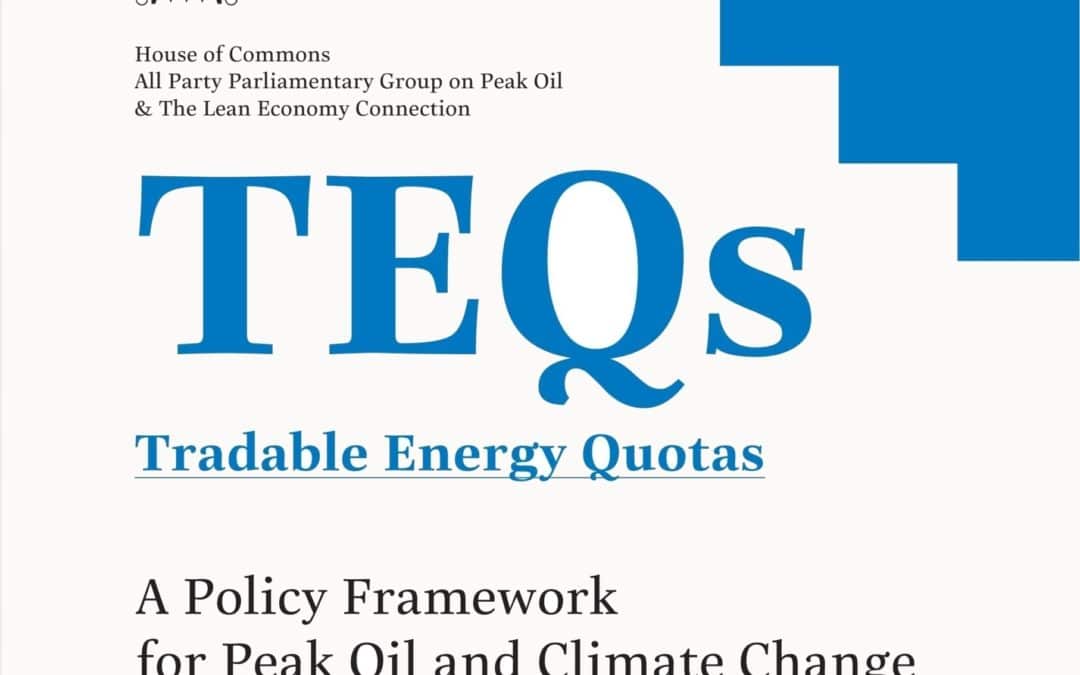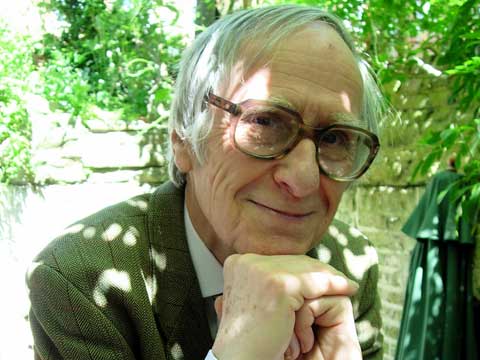


Happy birthday Transition Heathrow!
Now here’s a video to lift your soul and make your day, celebrating the first birthday of the ever-more wonderful Transition Heathrow. As discussed here last year, the site is not safe from the authorities, but it has now got an assured future until November at...
The Intergalactic Health & Safety Inspectorate
The brilliant cartoonist Marc Roberts (whose work will be familiar to regular Dark Optimism readers) got in touch with the Transition Network last year offering to produce a strip exploring the Transition concept. The time has come for the results to be unleashed on...
Tradable Energy Quotas: A Policy Framework for Peak Oil and Climate Change
APPGOPO's endorsement of TEQs comes at an interesting time in the rationing system's progress towards political acceptability. The inventor of TEQs, Dr. David Fleming (who passed away in November 2010), was a close friend of ASPO's Colin Campbell and one of the early whistleblowers on peak oil, and designed TEQs explicitly to address peak oil as well as climate change. He first published on the system in 1996, but its profile has grown in tandem with that of the challenges it was designed to address.
TEQs first received a Ten Minute Rule Bill reading at Parliament in 2004, before extensive interest from research centres led to a Government-funded scoping study in 2006. This reached positive conclusions, and was followed by expressions of interest from successive Secretaries of State for the Environment.
Accordingly, the Government commissioned a pre-feasibility study into the system, which concluded in May 2008. The headline finding of this was that TEQs "has potential to engage individuals in taking action to combat climate change, but is essentially ahead of its time and expected costs for implementation are high... The Government remains interested in the concept and, although it will not be continuing its research programme at this stage, it will monitor the wealth of research focusing on this area and may introduce (TEQs) if the value of savings and cost implications change".
The new APPGOPO report pulls together an impressive range of research to demonstrate conclusively that this condition has now been met, with bodies such as the Institute for Public Policy Research, the Lean Economy Connection, the Centre for Sustainable Energy and the UK Parliament's own Environmental Audit Committee all having criticised the pre-feasibility study's methodology and the decision to delay further moves towards implementation. One of the key criticisms is that the pre-feasibility study's cost-benefit analysis was overly focused on carbon emissions, and entirely failed to take into account the benefits of ensuring fair access to energy.

All Party Parliamentary TEQs report launch
What a week – Tuesday’s launch of the All Party Parliamentary Group on Peak Oil’s report into TEQs was a tremendous success, with excellent media coverage, including Time magazine, The Sunday Times, Bloomberg News, the BBC, the Financial Times and...
Obituary for David Fleming
Originally published in The Ecologist on the 21st December 2010
The online version of the article can be found here
Dr. David Fleming, a visionary Green thinker and one of the key whistleblowers on peak oil, has died aged 70. He was a significant figure in the genesis of the UK Green Party, the New Economics Foundation and the Transition Towns movement. His legacy also includes TEQs (Tradable Energy Quotas), the energy rationing scheme currently under consideration by the UK Government, his influential book Lean Logic and the real delight and inspiration he gave so freely to all who met him.
David was born on the 2nd January 1940 at Chiddingfold, Surrey, to Norman Bell Beatie Fleming, a Harley Street eye surgeon, and Joan Margaret Fleming, an award-winning crime writer.
After reading History at Trinity College, Oxford from 1959 to 1963, he went on to work in manufacturing, marketing and financial PR before earning an MBA from Cranfield University in 1968.
Despite being an avowed Conservative voter, he was a significant figure in the development of the UK Ecology/Green Party — his flat in Hampstead serving as its party office in the late 70s and early 80s — and urged his contemporaries to learn the language and concepts of economics in order to confound the arguments of their opponents. He practiced what he preached, and in 1979 began studies in economics at Birkbeck College, University of London, completing an MSc in 1983 and his PhD in 1988.

Recent Comments